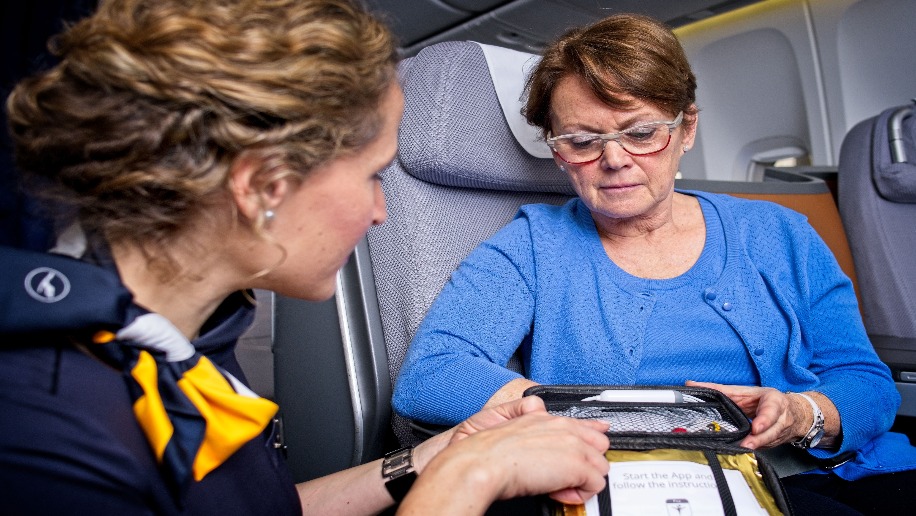Lufthansa has introduced mobile ECG (Electrocardiogram) system, CardioSecur on all its long-haul flights. In case of medical emergencies, this system will enable cabin crew without cardiological expertise to record an ECG for passengers and send the test results directly to a medical hotline on the ground.
Expressing his views on this new initiative, Dr. Sven-Karsten Peters, cardiologist, Lufthansa Medical Service said, “The health of our passengers is very close to our hearts. Especially when they are feeling unwell onboard, they should know that they are in good hands with Lufthansa.
“The results of the resting ECG conducted directly onboard the aircraft provide a better basis for deciding whether it is necessary to divert a plane in order to provide medical care on the ground in case of medical emergencies.”
How does CardioSecur system work?
CardioSecur system consists of an app on the flight attendant’s cabin mobile device (mini iPad) and a small bag with an ECG cable and four disposable electrodes.
First the flight attendant will establish an internet connection via the FlyNet wifi network on the cabin mobile device and starts the app.The ECG cable is then connected to the four electrodes, which is then placed on the upper body of the passenger in need. The app records a 12-lead ECG; and additional information such as the patient’s age, weight, gender, blood pressure and oxygen saturation are recorded manually.
The data is transferred to medical hotline of International SOS. The ISOS will evaluate the ECG and advise the cockpit crew via telephone based on the gathered data. The crew will then have to make the final decision on whether it is necessary to divert the plane.
Medical travel assistance
With a focus on further strengthening its onboard medical care, Lufthansa has now launched a medical travel assistance service that allows passengers to book either a nurse, paramedic or a doctor during the flight journey.
Aneri Shroff


